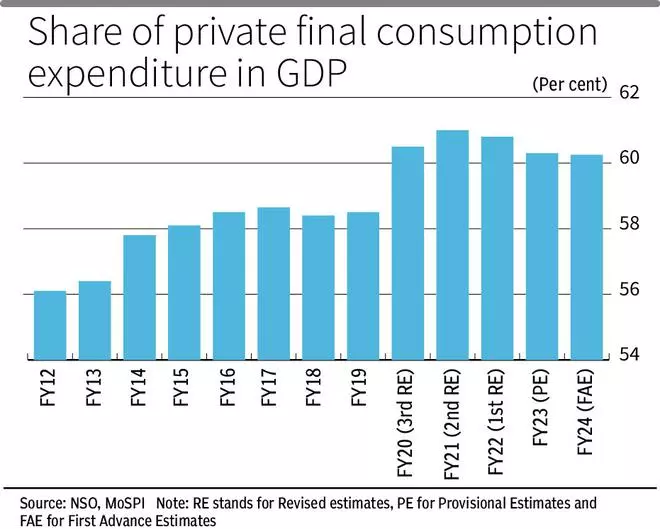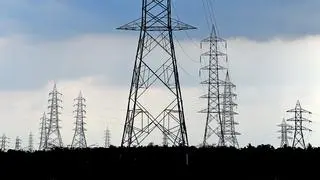Resilience of consumption demand has been a key growth driver for the economy in post-pandemic times amidst geopolitical volatility. A report released by the Department of Economic Affairs titled, The Indian Economy: A Review noted that this was not just due to pent-up demand but was also driven by factors including astute management of the Covid-19 pandemic, focus on infrastructure investments and schemes for social and economic inclusion of rural consumers, among others.
It noted that emphasis on digital public infrastructure has also led to an increase in private consumption, while Unified Payment Interface has aided the growth of e-commerce in the country.
Also read: CoWin, Aarogya Setu were game-changers: FinMin report
The DEA’s review report stated that the “all-inclusive welfare approach of the government” is expected to further fuel the increase of the consumption base and expansion of the middle class. “The share of Private Final Consumption Expenditure (PFCE) in GDP at current prices increased from an average of 58.4 per cent in the eight years preceding the onset of the pandemic to 60.8 per cent in the last three years ending FY24,” the report stated. The increase has been balanced across all components including durables, semi-durables and services. “However, it was not just the release of pent-up demand that strengthened PFCE. Astute management of Covid-19 built a positive economic outlook and led people to believe in higher future incomes, inducing them to increase spending,” the review report noted.
Growth driver
It noted that PFCE has emerged as a major growth driver in post-Covid times, playing a key role in sustaining the economy amidst external challenges such as geopolitical shocks, monetary tightening, and sluggish global demand. “As PFCE is also contributing to the reinvigoration of private capital investment, it has lent resilience to the domestic demand in the Indian economy. This has aided India to emerge as the fastest-growing major economy in the past few years,” the report added.

It added that this “secured consumption base” resulted from the robust increase in Per Capita Real Gross National Income (GNI) in the nine years preceding the onset of the pandemic. It attributed this to the government’s focus on macro-level growth, reduced compliance, easing of regulations and strategic disinvestment among others. “ All these reforms have ensured robust economic growth in the pre-pandemic years, which ultimately yielded gains for the entire population, as reflected in the sustained increase in per capita income, “ it noted.
Also read: Air travel back to pre-Covid levels: FinMin report
While boost to infrastructure investment by the government enabled creating employment, the report added that emphasis on creation of public digital infrastructure has enhanced the economic potential of businesses and citizens.
Digitalisation directly helped to increase private consumption, both during the pre and post-pandemic phases. “Digital payment systems like Unified Payments Interface (UPI), which has one of the largest platforms in the world, have aided the growth of e-commerce,” the report noted.
The report has credited government’s schemes aimed at economic and social inclusion as having reduced the rural-urban divide and increased the aspirations of the rural population, leading to higher spending on aspirational goods.







Comments
Comments have to be in English, and in full sentences. They cannot be abusive or personal. Please abide by our community guidelines for posting your comments.
We have migrated to a new commenting platform. If you are already a registered user of TheHindu Businessline and logged in, you may continue to engage with our articles. If you do not have an account please register and login to post comments. Users can access their older comments by logging into their accounts on Vuukle.